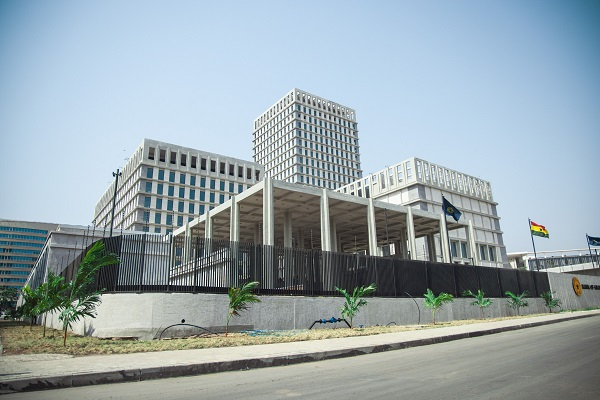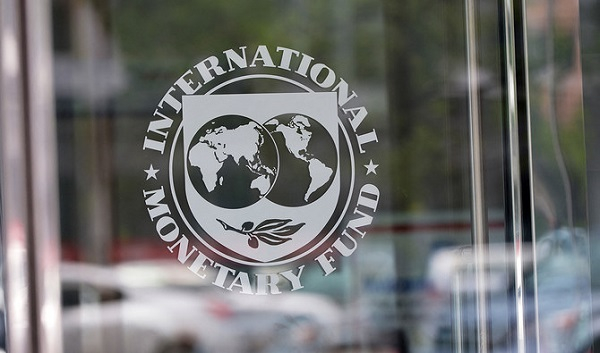Aephaniel Owusu-Agyemang: Why the IMF recommends reducing forex market intervention in Ghana
The International Monetary Fund (IMF) has recently advised the Bank of Ghana (BoG) to scale back its interventions in the foreign exchange (forex or FX) market. While such recommendations might appear complex to the average Ghanaian, the essence of the message is simple: allow the market to work more naturally while strengthening the economy in the long term.
This advice comes at a time when Ghana has been grappling with persistent currency depreciation, rising inflation, and pressure on foreign reserves. To help ordinary citizens better understand the IMF’s position, this article breaks down the reasons and benefits behind the recommendation.
First, it’s important to understand what forex intervention means. When the Ghana cedi is losing value rapidly against major currencies like the US dollar, the BoG may sell its foreign currency reserves mostly dollars to support the cedi. This short-term measure can stabilize the exchange rate, make imports more affordable, and calm investor nerves.
These interventions help in a few ways which includes
However, while these short-term actions offer temporary relief, they come with long-term risks that the IMF believes Ghana must address.
The IMF’s main concern is that frequent interventions in the forex market are not sustainable. Here’s why:
Rather than relying heavily on interventions, the IMF is urging Ghana to adopt a more structured and transparent policy framework for managing its currency. This includes:
By doing this, Ghana can build a more resilient economy and reduce the risks of inflation and reserve depletion.
Implementing a clear and effective FX policy framework has several long-term advantages:
At the heart of this policy recommendation is the wellbeing of Ghanaians. Less frequent intervention doesn’t mean the BoG will stop protecting the cedi. It means it will do so more wisely. In the long run, this approach can help:
The IMF’s recommendation for Ghana to reduce its forex market intervention is not about doing less it’s about doing better. By strengthening its FX policy framework, managing inflation smartly, and preserving critical reserves, Ghana can build a more stable economy that serves both present and future generations. With the right policies in place, Ghana can chart a path toward sustainable growth and financial independence.
The Views, Comments, Opinions, Contributions and Statements made by Readers and Contributors on this platform do not necessarily represent the views or policy of Multimedia Group Limited.
The Views, Comments, Opinions, Contributions and Statements made by Readers and Contributors on this platform do not necessarily represent the views or policy of Multimedia Group Limited.
You may also like...
Diddy's Legal Troubles & Racketeering Trial

Music mogul Sean 'Diddy' Combs was acquitted of sex trafficking and racketeering charges but convicted on transportation...
Thomas Partey Facing Rape & Sexual Assault Charges

Former Arsenal midfielder Thomas Partey has been formally charged with multiple counts of rape and sexual assault by UK ...
Nigerian University Admission Policy Changes

JAMB has clarified its admission policies, rectifying a student's status, reiterating the necessity of its Central Admis...
Ghana's Economic Reforms & Gold Sector Initiatives

Ghana is undertaking a comprehensive economic overhaul with President John Dramani Mahama's 24-Hour Economy and Accelera...
WAFCON 2024 African Women's Football Tournament

The 2024 Women's Africa Cup of Nations opened with thrilling matches, seeing Nigeria's Super Falcons secure a dominant 3...
Emergence & Dynamics of Nigeria's ADC Coalition

A new opposition coalition, led by the African Democratic Congress (ADC), is emerging to challenge President Bola Ahmed ...
Demise of Olubadan of Ibadanland
Oba Owolabi Olakulehin, the 43rd Olubadan of Ibadanland, has died at 90, concluding a life of distinguished service in t...
Death of Nigerian Goalkeeping Legend Peter Rufai

Nigerian football mourns the death of legendary Super Eagles goalkeeper Peter Rufai, who passed away at 61. Known as 'Do...




